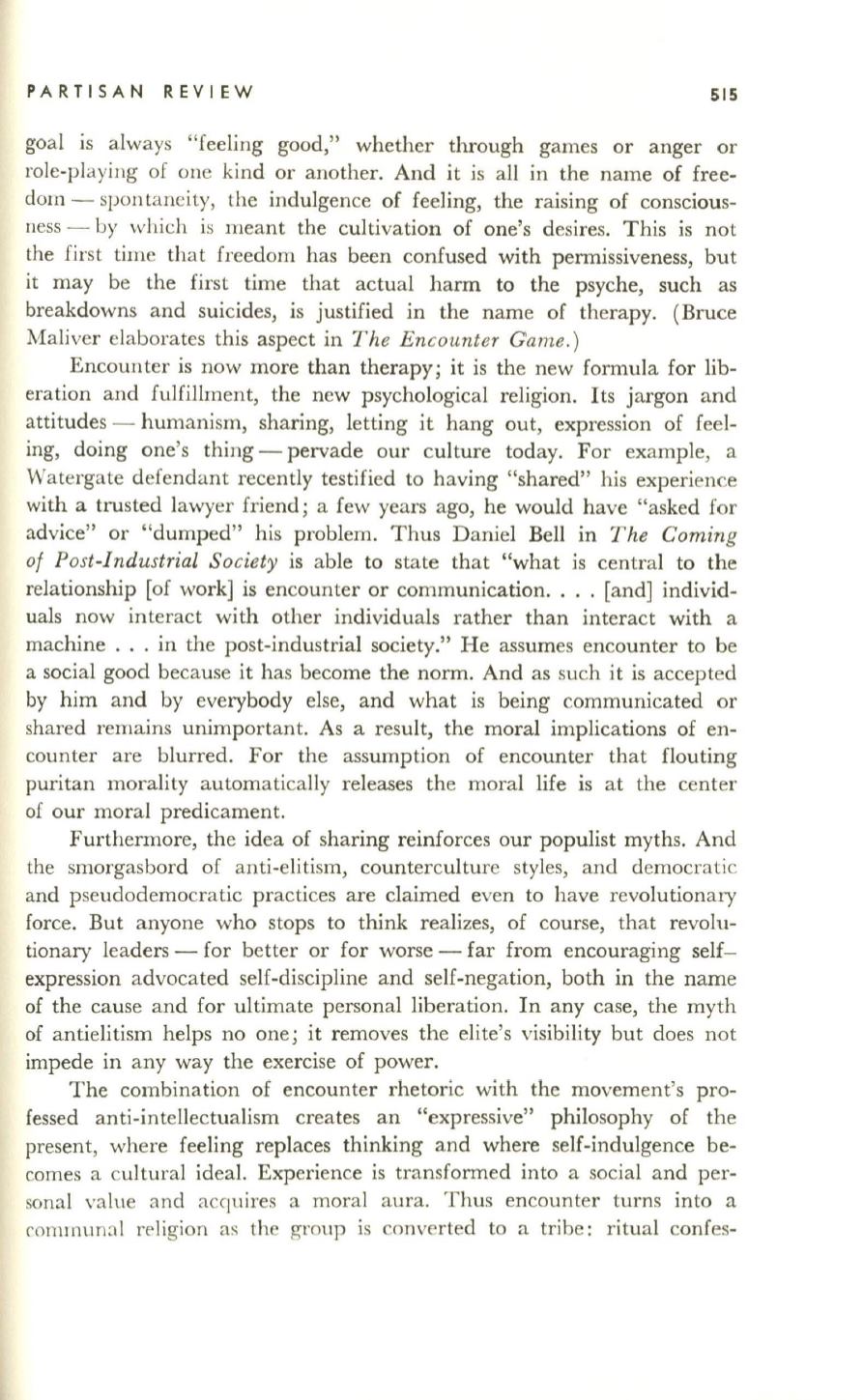
PARTISAN REVIEW
515
goal is always "feeling good," whether through games or anger or
role-playing of one kind or another. And it is all in the name of free–
dom - spontaneity, the indulgence of feeling, the raising of conscious–
ness - by which is meant the cultivation of one's desires. This is not
the first time that freedom has been confused with permissiveness, but
it may be the first time that actual harm to the psyche, such as
breakdowns and suicides, is justified in the name of therapy. (Bruce
Maliver elaborates this aspect in
The Encounter Game.)
Encounter is now more than therapy; it is the new formula for lib–
eration and fulfillment, the new psychological religion. Its jargon and
attitudes - humanism, sharing, letting it hang out, expression of feel–
ing, doing one's thing - pervade our culture today. For example, a
Watergate defendant recently testified to having "shared" his experience
with a trusted lawyer friend; a few years ago, he would have "asked for
advice" or "dumped" his problem. Thus Daniel Bell in
The Coming
of Post-Industrial Society
is able to state that "what is central to the
relationship [of work] is encounter or communication.... [and] individ–
uals now interact with other individuals rather than interact with a
machine ... in the post-industrial society." He assumes encounter to be
a social good because it has become the norm. And as such it is accepted
by him and by everybody else, and what is being communicated or
shared remains unimportant. As a result, the moral implications of en–
counter are blurred. For the assumption of encounter that flouting
puritan morality automatically releases the moral life is at the center
of our moral predicament.
Furthermore, the idea of sharing reinforces our populist myths. And
the smorgasbord of anti-elitism, counterculture styles, and democratic
and pseudodemocratic practices are claimed even to have revolutionary
force. But anyone who stops to think realizes, of course, that revolu–
tionary leaders - for better or for worse - far from encouraging self–
expression advocated self-discipline and self-negation, both in the name
of the cause and for ultimate personal liberation. In any case, the myth
of antielitism helps no one; it removes the elite's visibility but does not
impede in any way the exercise of power.
The combination of encounter rhetoric with the movement's pro–
fessed anti-intellectualism creates an "expressive" philosophy of the
present, where feeling replaces thinking and where self-indulgence be–
comes a cultural ideal. Experience is transformed into a social and per–
sonal value and acquires a moral aura. Thus encounter turns into a
commun::l1 religion as the group is converted to a tribe: ritual confes-


